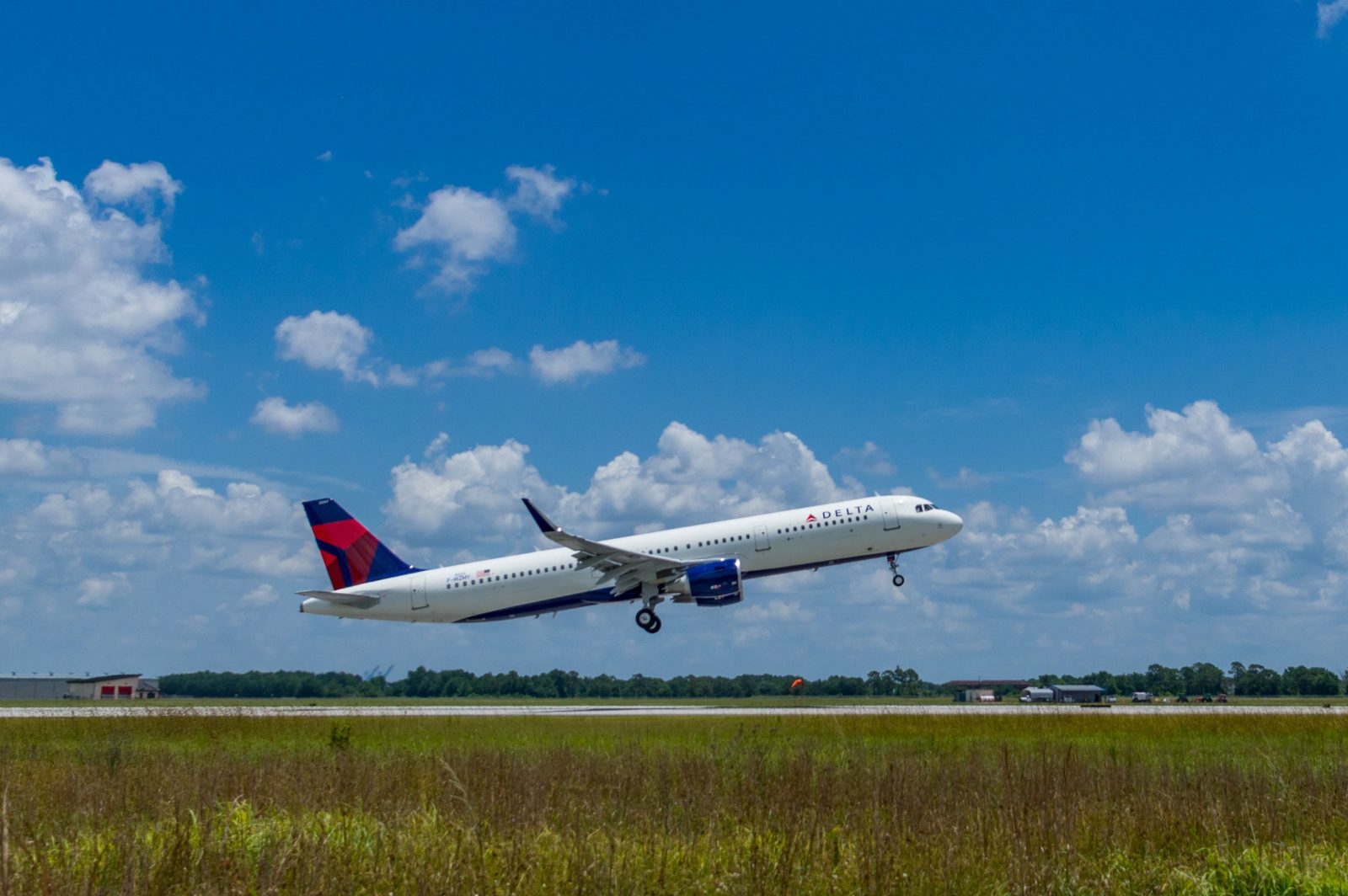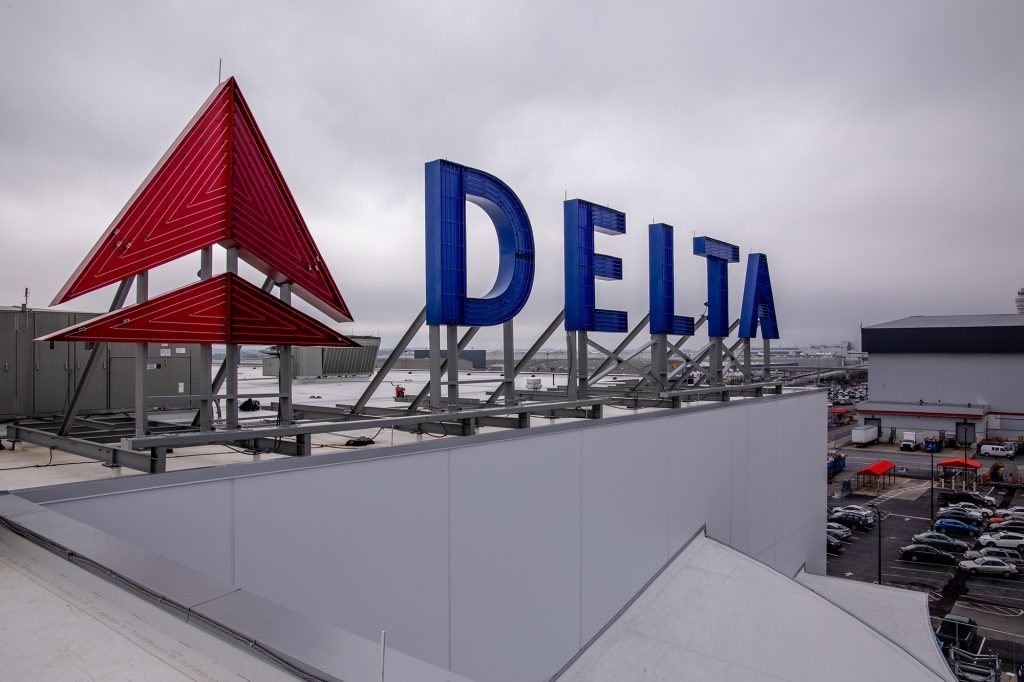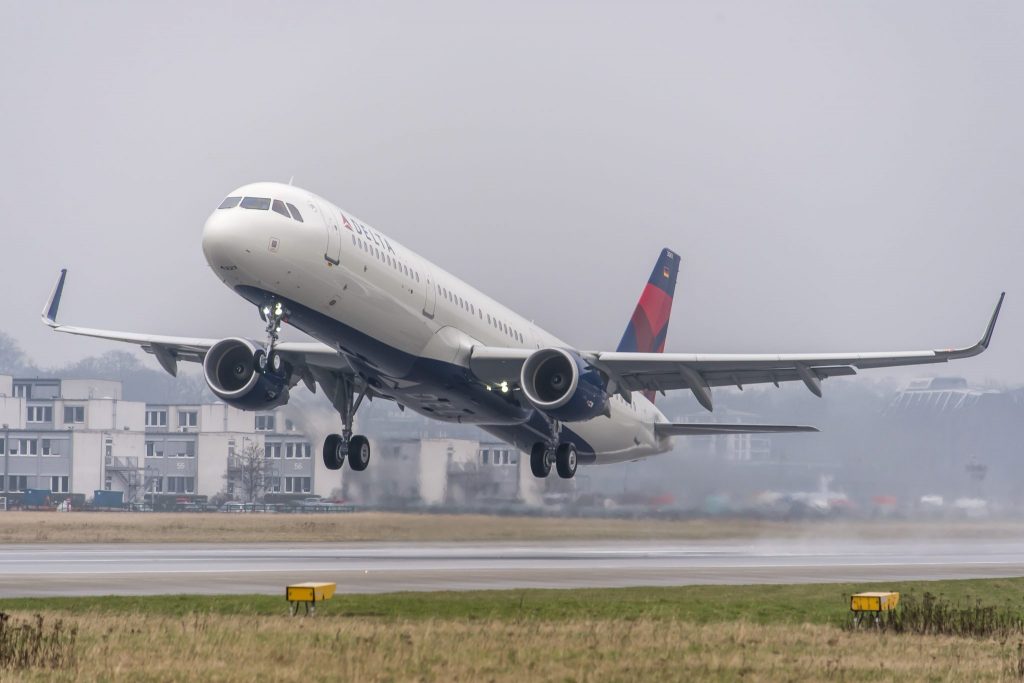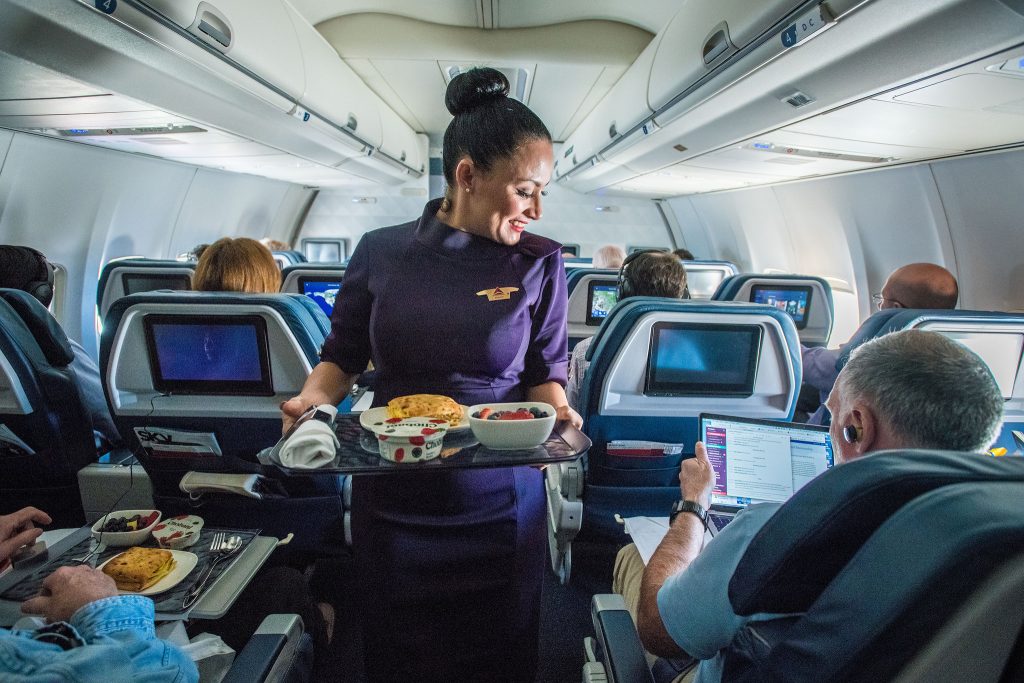
Delta Air Lines announced a full-year pre-tax income of $6.2 billion on Tuesday morning, paving the way for a record profit-sharing bonus of $1.6 billion to be shared out amongst the Atlanta-based carrier’s 90,000 employees. Ed Bastian, the airline’s chief executive said Delta People – ie. its employees – were the “foundation for our success,” who had brought a “best-in-class travel experiences to our 200 million customers.”

“I’m pleased to recognize their outstanding performance with a record $1.6 billion in profit sharing for 2019,” Bastian continued as he presented the results. Delta employees, including flight attendants and ramp workers, are set to receive their share of the bonus on Valentines Day – a love note of sorts from their employer.
But those flight attendants and ramp workers have been told they might not receive such love if they opt to unionize. Both groups of workers are currently being encouraged to sign union authorization cards by the Machinists union (IAM) and the Association of Flight Attendants (AFA-CWA).
Simply put, Delta warns, a union contract could raise costs and seriously hamper the company’s ability to offer pay raises and other bonuses – like the 4 per cent increase ground and flight attendants work groups received in August. Instead, any raises would have to come from negotiations with the unions and those talks could drag on for years.
By and large, Delta employees are not only some of the most motivated workers in the U.S. aviation industry but they’ve also traditionally agreed with their employer that a ‘direct relationship’ is better than union representation.

Several attempts to unionize Delta’s flight attendants have been rejected in recent years and an ongoing campaign from the IAM hasn’t come too much.
But could that all be about to change? Delta flight attendants are said to have become galvanised by talk of a “toxic uniform” scandal following the introduction of a Zac Posen-designed uniform in 2018. Over 500 flight attendants have joined a class-action lawsuit against the manufacturer, while some critics have accused Delta of trying to cover up the extent of the problem.
The uniform debacle has apparently driven a new unionization effort by the Association of Flight Attendants who have gone head to head with the IAM.
Sara Nelson, international president of AFA claims her organisation has heard from thousands of Delta flight attendants who want help in gaining union representation. AFA will need to get hold of signed union authorization cards from at least 50 per cent of the workgroup before any formal ballot can take place – it’s not known how close the union is to achieving this milestone.
And it’s not just a potentially reaction-causing uniform that is irking some Delta workers. While Delta’s profit-sharing outstrips competitors, the average pay for Delta flight attendants is claimed to seriously lag behind their peers at the likes of United and American.
On average, United FA’s were earning over $62,000 in 2017, while Delta FA’s were on an average of $58,000. Both American and Southwest flight attendants earned more than their Delta counterparts. In fact, Nelson claims that even with the profit-sharing bonus, a Delta FA earns on average $14,000 less than a crew member working for United.

Her reasoning for the difference is simple – because AFA has managed to negotiate a better compensation package for unionized United flight attendants.
“Delta Flight Attendants are the heart of the airline and key to its industry-leading success. They deserve a union contract that leads the industry too,” Nelson explained in November.
It’s not even like United’s flight attendants are working harder than their Delta counterparts to justify the better pay. In fact, if figures released by the IAM are to be believed, Delta workers are some of the most productive in the industry. On average, there are fewer Delta FA’s on an aircraft than at either American or United, with a Delta flight attendant allegedly seeing more than two thousand more passengers per year than their United peers.
One of the key factors in Delta’s surprise 4 per cent pay rise last year was its admission of “an intense year and a particularly long, hard summer” that had “put a strain on everyone and stressed our people and resources.”
And then, of course, there’s the issue of Delta’s ‘Ready Reserves’ programme – the airline says it gives employees employed under the programme flexibility to enjoy their lifestyle choices. Critics, though, feel it’s unfair that Ready Reserves don’t enjoy company issued medical insurance or guaranteed paid vacation.
Last year, Delta’s internal anti-union publicity campaign went viral when the airline implied its workers would be better off spending union dues on a new games console. This year, we may well find out if its employees agree.
Mateusz Maszczynski honed his skills as an international flight attendant at the most prominent airline in the Middle East and has been flying ever since... most recently for a well known European airline. Matt is passionate about the aviation industry and has become an expert in passenger experience and human-centric stories. Always keeping an ear close to the ground, Matt's industry insights, analysis and news coverage is frequently relied upon by some of the biggest names in journalism.







